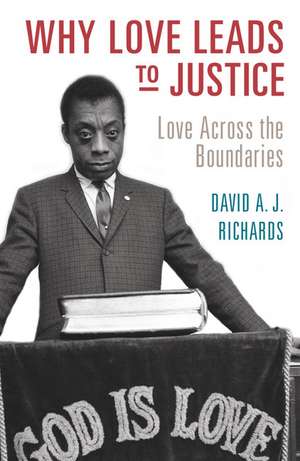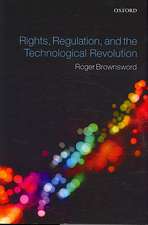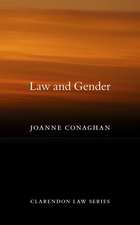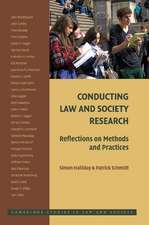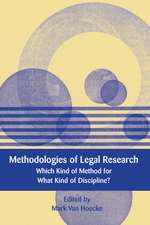Why Love Leads to Justice: Love across the Boundaries
Autor David A. J. Richardsen Limba Engleză Paperback – 30 sep 2015
| Toate formatele și edițiile | Preț | Express |
|---|---|---|
| Paperback (1) | 204.05 lei 6-8 săpt. | |
| Cambridge University Press – 30 sep 2015 | 204.05 lei 6-8 săpt. | |
| Hardback (1) | 570.55 lei 6-8 săpt. | |
| Cambridge University Press – 13 oct 2015 | 570.55 lei 6-8 săpt. |
Preț: 204.05 lei
Nou
Puncte Express: 306
Preț estimativ în valută:
39.04€ • 40.69$ • 32.33£
39.04€ • 40.69$ • 32.33£
Carte tipărită la comandă
Livrare economică 03-17 aprilie
Preluare comenzi: 021 569.72.76
Specificații
ISBN-13: 9781107569829
ISBN-10: 1107569826
Pagini: 270
Dimensiuni: 152 x 231 x 17 mm
Greutate: 0.38 kg
Editura: Cambridge University Press
Colecția Cambridge University Press
Locul publicării:New York, United States
ISBN-10: 1107569826
Pagini: 270
Dimensiuni: 152 x 231 x 17 mm
Greutate: 0.38 kg
Editura: Cambridge University Press
Colecția Cambridge University Press
Locul publicării:New York, United States
Cuprins
Introduction: love resists injustice; 1. Breaking the love laws as resistance; 2. Benjamin Britten and Peter Pears: love and resistance; 3. Christopher Isherwood's struggle for a resistant voice; 4. Wystan Auden on the anxiety of manhood; 5. Bayard Rustin on nonviolence; 6. James Baldwin on love and voice; 7. Eleanor Roosevelt, Margaret Mead, and Ruth Benedict on resisting patriarchy; Conclusion: moral injury and love: why love leads to justice.
Recenzii
'Beautifully written and powerfully argued, Richards's Why Love Leads to Justice provides us with a new and original way of thinking about love and justice. A tour de force.' Drucilla Cornell, Rutgers University, New Jersey
'A fascinating account of the ways in which illicit love, both gay and straight, empowered a diverse group of seekers for justice in the nineteenth and twentieth centuries.' Kwame Anthony Appiah, New York University, and author of The Ethics of Identity
'In this book, David Richards brings his signature erudition to bear on the relationship between law and love. More specifically, he argues that the formal and informal 'love laws' that determine whom and how we are permitted to love often reflect and reinforce the core injustice of patriarchy. By examining a series of love stories, Richards contends that individuals found the ethical space to challenge patriarchy not in spite of, but because of, their willingness to break with convention. I disagreed with some of the instances raised but kept thinking back to this work long after I finished it. It is a radiant manifesto for love as an ethical faculty.' Kenji Yoshino, Chief Justice Earl Warren Professor of Constitutional Law, New York University Law School
'This ground-breaking book opens up questions that any psychologist interested in ethical development will want to take seriously. By revealing love as the force that crosses the boundaries created by patriarchy, it invites a new way of thinking about what stands in the way of justice.' Carol Gilligan, University Professor of Applied Psychology and the Humanities, New York University, and author of In a Different Voice and The Birth of Pleasure
'Richards, openly gay for decades and a law professor, focuses on the poisonous idea of patriarchy so prevalent and destructive in the West. Through the lives of several prominent gay men and women who must navigate a society governed by oppressive love concepts, Richards argues for something new. In his world, the entrenched 'Love Laws' of the West - those advanced by patriarchy, sexism, racism, hate, and homophobia - can be challenged and discredited effectively. … Richards has given us a book that resists those laws and showcases the lives of people that did so as well.' Brian Gilmore, Rain Taxi Review
'Curious as to why society's greatest visionaries and most groundbreaking artists often love through boundary-breaking relationships, Richards offers an interdisciplinary exploration about erotic power and ethical resistance to patriarchy. … Reading Why Love Leads to Justice deeply affirmed my belief in love, specifically the radical power of the erotic. Richards' subjects force us to confront the ways we enforce Love Laws today. Their stories compel us to ask ourselves whether we are truly resisting patriarchy. And, if we aren't, whether this is due to our failure to let love run wildly through our lives.' Robert Shine, National Catholic Reporter
'Read this book for an elegant, impressionistic view of 19th- and 20th-century intellectuals pushing for a more just world.' Choice
'A fascinating account of the ways in which illicit love, both gay and straight, empowered a diverse group of seekers for justice in the nineteenth and twentieth centuries.' Kwame Anthony Appiah, New York University, and author of The Ethics of Identity
'In this book, David Richards brings his signature erudition to bear on the relationship between law and love. More specifically, he argues that the formal and informal 'love laws' that determine whom and how we are permitted to love often reflect and reinforce the core injustice of patriarchy. By examining a series of love stories, Richards contends that individuals found the ethical space to challenge patriarchy not in spite of, but because of, their willingness to break with convention. I disagreed with some of the instances raised but kept thinking back to this work long after I finished it. It is a radiant manifesto for love as an ethical faculty.' Kenji Yoshino, Chief Justice Earl Warren Professor of Constitutional Law, New York University Law School
'This ground-breaking book opens up questions that any psychologist interested in ethical development will want to take seriously. By revealing love as the force that crosses the boundaries created by patriarchy, it invites a new way of thinking about what stands in the way of justice.' Carol Gilligan, University Professor of Applied Psychology and the Humanities, New York University, and author of In a Different Voice and The Birth of Pleasure
'Richards, openly gay for decades and a law professor, focuses on the poisonous idea of patriarchy so prevalent and destructive in the West. Through the lives of several prominent gay men and women who must navigate a society governed by oppressive love concepts, Richards argues for something new. In his world, the entrenched 'Love Laws' of the West - those advanced by patriarchy, sexism, racism, hate, and homophobia - can be challenged and discredited effectively. … Richards has given us a book that resists those laws and showcases the lives of people that did so as well.' Brian Gilmore, Rain Taxi Review
'Curious as to why society's greatest visionaries and most groundbreaking artists often love through boundary-breaking relationships, Richards offers an interdisciplinary exploration about erotic power and ethical resistance to patriarchy. … Reading Why Love Leads to Justice deeply affirmed my belief in love, specifically the radical power of the erotic. Richards' subjects force us to confront the ways we enforce Love Laws today. Their stories compel us to ask ourselves whether we are truly resisting patriarchy. And, if we aren't, whether this is due to our failure to let love run wildly through our lives.' Robert Shine, National Catholic Reporter
'Read this book for an elegant, impressionistic view of 19th- and 20th-century intellectuals pushing for a more just world.' Choice
Descriere
This book tells the stories of notable historical figures whose resistance of patriarchal laws transformed ethical, political, and legal standards.
